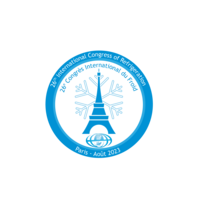
IIR document
Reducing cold chain GHG emissions in Norwegian fish and meat industry sectors.
Number: 0470
Author(s) : DALSVÅG H., STRAND A. V., WIDELL K. N.
Summary
The food chain represents a climate impact of major concern as it is a significant source of greenhouse gas (GHG) emissions. Norway has a long coastline with perfect conditions for salmon farming and well-established fisheries, in addition to a large area suitable for grazing, making seafood and meat important food sectors. Several companies in Norway have already taken steps to reduce emissions, while many still have a long way to go. In this paper, measures to reduce GHG emissions in the meat and seafood industry and the possibilities for reaching the goal of climate neutral food businesses are explored. The focus is post-harvest gate with emphasis on refrigeration. The objective was to identify the needs and measures of greatest impact within the Norwegian food industry. For that aim, interviews and a workshop with relevant companies were performed to share knowledge, discuss challenges, and create synergies. This paper summarizes the activities, the results, and the conclusions.
Available documents
Format PDF
Pages: 9
Available
Free
Details
- Original title: Reducing cold chain GHG emissions in Norwegian fish and meat industry sectors.
- Record ID : 30031338
- Languages: English
- Subject: Environment, General information
- Source: Proceedings of the 26th IIR International Congress of Refrigeration: Paris , France, August 21-25, 2023.
- Publication date: 2023/08/21
- DOI: http://dx.doi.org/10.18462/iir.icr.2023.0470
Links
See other articles from the proceedings (491)
See the conference proceedings
-
Mapping Greenhouse Gas emissions from the food ...
- Author(s) : TRAORE A., LAGUERRE O., ALLOUCHE Y., DELAHAYE A.
- Date : 2023/08/21
- Languages : English
- Source: Proceedings of the 26th IIR International Congress of Refrigeration: Paris , France, August 21-25, 2023.
- Formats : PDF
View record
-
An innovative tool to evaluate and optimize GHG...
- Author(s) : LEDUCQ D., EVANS J., VERBOVEN P., ALVAREZ G.
- Date : 2023/08/21
- Languages : English
- Source: Proceedings of the 26th IIR International Congress of Refrigeration: Paris , France, August 21-25, 2023.
- Formats : PDF
View record
-
Baseline refrigeration emissions in the UK.
- Author(s) : FOSTER A., BROWN T., EVANS J.
- Date : 2022/04/11
- Languages : English
- Source: 7th IIR International Conference on Sustainability and the Cold Chain (Online). Proceedings: April 11-13 2022
- Formats : PDF
View record
-
Projecting the carbon emissions from refrigerat...
- Author(s) : FOSTER A., EVANS J.
- Date : 2023/08/21
- Languages : English
- Source: Proceedings of the 26th IIR International Congress of Refrigeration: Paris , France, August 21-25, 2023.
- Formats : PDF
View record
-
A whole building life-cycle assessment approach...
- Author(s) : ZHANG H., CAI J., BRAUN J. E.
- Date : 2021/05/24
- Languages : English
- Source: 2021 Purdue Conferences. 6th International High Performance Buildings Conference at Purdue.
- Formats : PDF
View record
